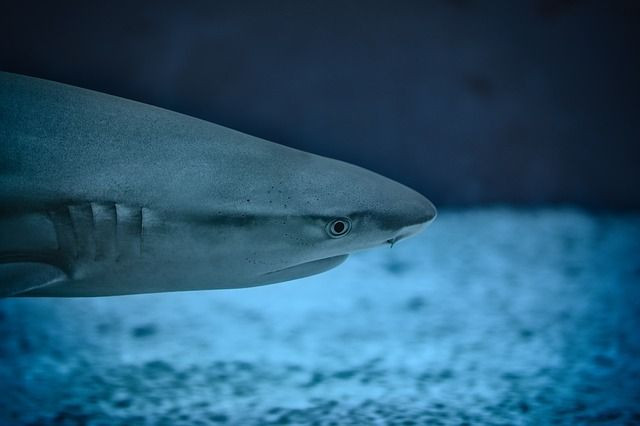Cancer Cure To Incurable Lung Disease Treatment; What Shark Immune System Is Teaching Us About Human Disease

Everyone knows about the shark’s impressive predator skills, but few are aware of its equally impressive immune system. You see, sharks have some near superhero-like healing qualities: they're incredibly fast at repairing wounds and injuries, and also may have a higher resistance to cancer. Researchers from around the world are hoping to use the shark’s unique biology to help develop better treatments and medications for human diseases.
Researchers at Cornell University in New York are using shark DNA to better understand their resistance to cancer, and perhaps reproduce this quality in humans. In a study, now published in the journal BMC Genetics, Cornell researchers provide the first evidence that some shark and ray immunity genes have undergone evolutionary adaptation that may be tied to these novel immune system abilities. What’s more, these specific shark immunity genes also have counterparts in humans and their overexpression is associated with a number of cancers. These genes have been modified in sharks thanks to natural selection, and the team believe that further understanding these modifications could help human cancer research.
Read: Cancer Cure Found In Naked Mole Rats? Chemical, Hyaluronan, May Contain Anti-Cancer Properties
“The signal of selection in these specific shark immunity genes is especially intriguing in the context that they are involved in promoting cancer in humans, while at the same time sharks are suspected to have higher resistance to cancers,” said Mahmood Shivji, a researcher involved in the study, in a recent statement.
However, sharks' genetics are informing more than cancer research. Scientists in Australia hope to use the sea predator’s super immune system as a model to develop a drug to treat idiopathic pulmonary fibrosis (IPF), an incurable lung disease, The BBC reported. The drug is called AD-114 and was developed based on a blood sample from a wobbegong shark at Melbourne Aquarium.
IPF is a rare yet serious disease characterized by lung scarring which causes gradually worsening shortness of breath. There is no cure and treatment is limited. The new drug works by targeting fibrosis-causing cells, essentially killing the disease before it is able to progress into its final stage. Human trials are set to begin in 2018.
In addition, the same healing qualities may also lend a hand in dental health. Sharks can grow teeth throughout their lifetime, and although humans have the same genes, we are limited to only two sets of fresh chompers. However, a study published last year from researchers at the University of Sheffield in England studied the shark genome to see if humans also may be able to grow teeth throughout their lives.
Source: Marra NJ, Richards VP, Early A, et al. Comparative transcriptomics of elasmobranchs and teleosts highlight important processes in adaptive immunity and regional endothermy. BMC Genomics . 2017
See Also:
New 3D-Imaging Technique Reveals How Pulmonary Fibrosis Develops
Published by Medicaldaily.com



























